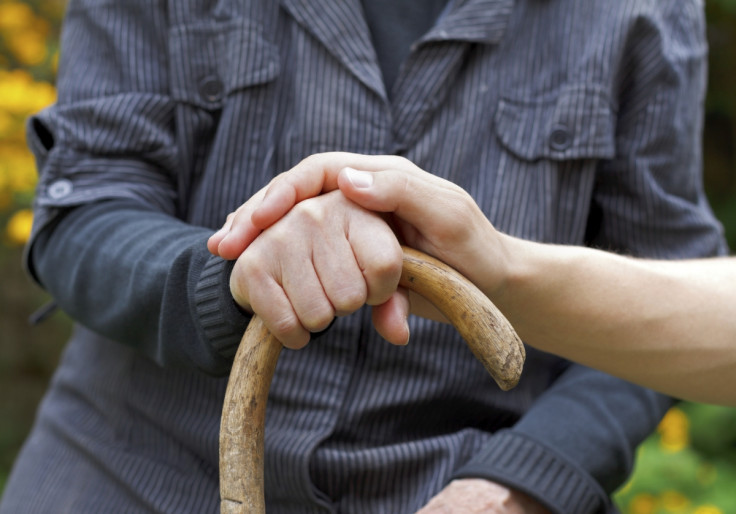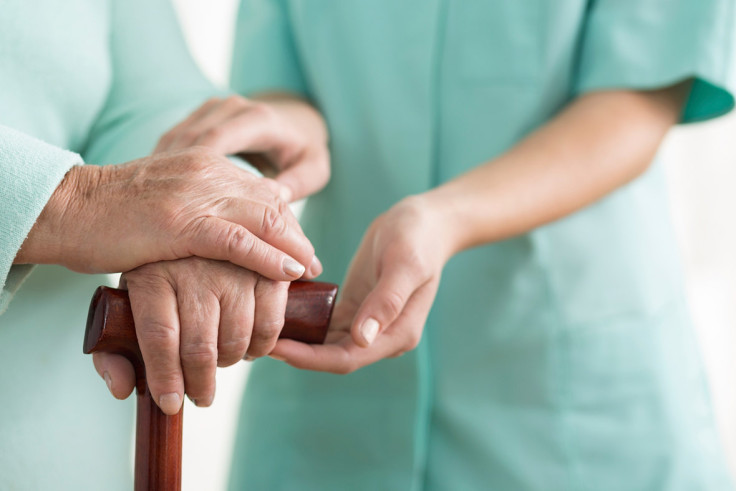Dementia Awareness Week 2016: What is Alzheimer's disease and what causes it?

With an estimated one million people expected to have Alzheimer's disease by 2025, researchers are under pressure to better understand the condition and what causes it. Although one in six people aged 80 and over have dementia, more than 40,000 people under 65 suffer from the condition in the UK.
Alzheimer's is a disease that causes dementia, a term which is used to describe a set of symptoms that can include memory loss and difficulties with thinking, problem-solving and language. The symptoms occur when the brain is damaged by diseases such as Alzheimer's.
On Dementia Awareness Week, IBTimes UK looks at the causes of the disease.
What is Alzheimer's disease?
Alzheimer's is a disease which develops slowly, meaning more areas of the brain will be damaged over time and the symptoms will gradually become more severe. Early symptoms can include: regularly forgetting recent events, becoming more repetitive, regularly misplacing items, having difficulty in finding the right words, getting lost or disorientated and experiencing mood or behaviour problems such as irritability.
The disease involves changes in the brain which go beyond the normal process of ageing. As the disease progresses, two proteins; amyloid and tau build up in the brain to form structures called "plaques" or "tangles". Over time, more and more nerve cells are damaged.
The charity, Alzheimer's Society states there are lower levels of a chemical called acetylcholine in the brain of an individual with Alzheimer's disease. The chemical helps to convey messages between the nerve cells. Low or diminishing levels of acetylcholine and the loss of these nerve cells lead to worsening symptoms.

Which treatments are available?
Clinical trials to find better treatments to delay, cure or even prevent dementia are ongoing. There are several therapeutic options to combat Alzheimer's disease, although as of yet there is no cure. Currently, there are non-drug treatments to stimulate thinking skills and drug treatments to increase the amount of acetylcholine in the brain and to reverse the symptoms of severe Alzheimer's.
There are also treatments for symptoms such as depression, anxiety, agitation and aggression, which can include cognitive behavioural therapy.
What are the chances of developing Alzheimer's?
It is still unknown what triggers the condition, but there are several risk factors thought to be involved. The likelihood of developing the condition doubles every five years after the age of 65, but a number of people develop early-onset Alzheimer's aged around 40.
Lifestyle factors are also understood to increase the risk of developing the condition, such as smoking, obesity, high cholesterol and diabetes. Genes can contribute to a risk of developing Alzheimer's – specifically the APOE-e4 gene - although the actual increase in risk is minor in those who have a close family member with the condition.
Ongoing research has revealed more about triggers for the disease. Most recently, scientists from the University of Glasgow and the Hong Kong University of Science and Technology published research which showed an immune system protein could help reverse some of the physical and cognitive changes seen during the progression of Alzheimer's disease.
© Copyright IBTimes 2025. All rights reserved.






















